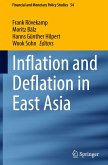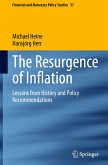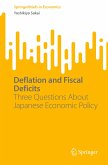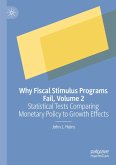This book is published in English that fully reveals why the Bank of Japan (BOJ) under Governor Haruhiko Kuroda has failed to end deflation. The BOJ's monetary policy was based on the theories of reflationist economists such as Kikuo Iwata. They argued that if the BOJ adopted an inflation target that had a deadline for meeting that goal, clarified the Bank's responsibility, and supplied a large monetary base through a quantitative easing policy, inflation expectations would rise and deflation would be overcome.
This book shows that there is no theoretical basis or evidence for this claim. Furthermore, the supply of a large monetary base itself became impossible and was abandoned in 2016. However, since publicly stating that overcoming deflation is impossible would incur embarrassment and a loss of confidence, the BOJ made it appear as if a former policy was still in place.
The book also reveals that consumer prices in Japan changed in tandem with import prices; consequently, in 2022, consumer prices rose by 4% due to the surge in import prices. Since the 1990s, the BOJ has been the focus of intense attention from economists around the world interested in monetary policy. The explanation presented here, showing the BOJ's historic fiasco under Gov. Kuroda in controlling deflation, provides valuable lessons for monetary policymakers and economists.
This book shows that there is no theoretical basis or evidence for this claim. Furthermore, the supply of a large monetary base itself became impossible and was abandoned in 2016. However, since publicly stating that overcoming deflation is impossible would incur embarrassment and a loss of confidence, the BOJ made it appear as if a former policy was still in place.
The book also reveals that consumer prices in Japan changed in tandem with import prices; consequently, in 2022, consumer prices rose by 4% due to the surge in import prices. Since the 1990s, the BOJ has been the focus of intense attention from economists around the world interested in monetary policy. The explanation presented here, showing the BOJ's historic fiasco under Gov. Kuroda in controlling deflation, provides valuable lessons for monetary policymakers and economists.








